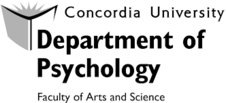

Imagine that you are out on a typical dinner date and your significant other is ‘talking’ way too much with the waiter which makes you feel insecure, fearful or concerned about your relationship: that’s jealousy. Most of us have experienced jealousy as a reaction to romantic relationships at some point in our life. Did you know that this feeling can stem from having an anxious attachment style? Jealousy is especially prevalent when we are involved in a romantic relationship as it motivates one to take action to protect the relationship [3,4].
What is an anxious attachment style?
An individual that has an anxious attachment style is someone who experiences a high level of anxiety caused by a fear that their romantic partner would not reciprocate their craving for closeness (need for intimacy). [1, 2] Additionally, a person high in anxious attachment tends to overestimate the interest of their prospective partner, crave relationships and fear rejection. [1]
Common features of jealous anxiously attached people
Multiple studies have established a strong relation between jealousy and anxious attachment style. [2, 4] Feeling jealous can shape positive and negative behaviour. A positive aspect of jealousy is its role in maintaining romantic relationships. In the context of the situation with the flirty waiter, you feel jealous, so you act and ask for another server for the rest of the evening removing the threatening object from your relationship. However, anxious-attached individuals are known to have more negative behaviours due to jealousy. [5] They are more likely to be jealous of others because of their concern regarding their partner reciprocating their feelings compared to the general population.[4] For example, a negative behaviour stemming from jealousy would be to go through your partner’s phone without their knowledge.
Inducing Jealousy
Anxious-attached individuals are increasingly likely to induce jealousy in their relationship to ensure a reaction from their partner compared to non-anxious attached partners. [2] This reaction helps confirm the partner’s feeling to an anxious-attached individual which helps reduce their anxiety and can even boost their (the anxious individual) self-esteem.[2]
Using online surveys, Wegner and colleagues [2] found that anxious-attached individuals' communication styles are poor because they avoid talking about their feelings properly out of fear of rejection. This leads to greater use of jealousy-inducing techniques to ensure the mutual romantic feelings of their partner. [2] For example, flirting with others to receive a reaction from your partner. In moderation, such behaviour can be considered positive as the jealous reaction (speaking up, being angry, etc.) of the partner reinstates their interest in the relationship. [2] However, if one’s partner continuously flirts with others such behaviour can quickly become straining on a relationship. [3]
Interestingly, more than 84% of young adults have used jealousy-inducing techniques at least once in romantic relationships regardless of their attachment style and gender.[2] However, jealousy-induced behaviour is more commonly found in anxious-attached individuals.
Jealous Online Negative Behaviours
Furthermore, anxious-attached individuals are more likely to experience jealousy that results in negative behaviour. This can manifest in something like monitoring a partner’s online presence, invading their privacy by going through their personal belongings (e.g. phone, computer, bag) or spying on their behaviour such as Facebook activity. [4, 6]
Facebook-jealousy is a term to describe jealousy formation by monitoring a partner’s online Facebook activities. Studies have established that anxious-attached people (who are hyper-aware of threats to their relationship) will monitor their partner’s online activities more.[4, 6] Jealousy will continue to increase this negative monitoring behaviour in anxiously attached individuals.
Another negative behaviour strongly associated with anxious-attached individuals is cyber dating abuse perpetration (CDAP). CDAP is defined as using technology to harass, intimidate, verbally abuse, monitor, shame, or impersonate one’s, romantic partner.[5] One study on college students established that anxious-attached individuals were more likely to engage in CDAP when they did not trust their partner, felt jealous or anticipated infidelity.[5] Overall, most of the participants had used cyber dating violence in the last six months regardless of their attachment style, but the majority of people using CDAP were anxious-attached individuals. [5]
Solutions for reducing jealously among anxious individuals Although anxiously attached individuals are likely to express unhealthy jealous behaviour, there are ways to reduce such behaviours. An efficient solution to reduce jealousy would be to improve one’s communication style in romantic relationships, for example, anxious individuals should try and be more assertive in communicating their needs and wants to their partners.[2] Another solution would be to use touch to reduce jealousy. Kim and colleagues [7], established that the physical act of affectionate touch can reassure anxious people and reduce overall feelings of jealousy. More specifically, after putting 75 couples into jealousy-inducing scenarios, touching served as a protective factor against jealousy as it conveyed positive feelings (e.g. sense of security) to a partner(s). [7] With that being said, it is important to know that attachment styles are not permanent and are not distinct categories. Regardless of one’s attachment style people become more secure over time. [8] In addition, depending on life-experience coping mechanisms related to attachment style change too. [8] In other words, various events in one’s lifetime can change the degree of attachment style in one’s own self which will impact their jealous behaviour. To conclude, this article explored the relationship between anxious attachment style and jealousy, its consequences, and solutions. Being aware of the behavioural consequences of jealousy on anxious-attached individuals can help us understand how to deal with such issues when it occurs in unhealthy ways. In other words, next time the waiter at a restaurant is “talking” too much to your partner, don’t let your anxious attachment style get the best of you, and ask for another server for the night!
References
- Aronson, E. Wilson, T. D., Fehr, B, Akert, R. M. (2017) Social Psychology, Sixth Canadian Edition, Pearson.
2, Wegner, R., Roy, A. R. K., Gorman, K. R., & Ferguson, K. (2018). Attachment, relationship communication style and the use of jealousy induction techniques in romantic relationships. Personality and Individual Differences, 129, 6–11. https://doi.org/10.1016/j.paid.2018.02.033
-
Huelsnitz, C. O., Farrell, A. K., Simpson, J. A., Griskevicius, V., & Szepsenwol, O. (2018). Attachment and Jealousy: Understanding the Dynamic Experience of Jealousy Using the Response Escalation Paradigm, Personality and Social Psychology Bulletin, 44(12), 1664-1680. https://doi.org/10.1177/0146167218772530
-
Hira, S., & Bhogal, M. S. (2020). Predicting Facebook jealousy in romantic relationships: Further support for attachment style and trust, Current Psychology, 1-4. https://doi.org/10.1007/s12144-020-01115-2
-
Toplu-Demirtaş, E., Akcabozan-Kayabol, N. B., Araci-Iyiaydin, A., & Fincham, F. D. (2020). Unraveling the Roles of Distrust, Suspicion of Infidelity, and Jealousy in Cyber Dating Abuse Perpetration: An Attachment Theory Perspective. Journal of Interpersonal Violence, 0(0), 1-31. 0886260520927505. https://doi.org/10.1177/0886260520927505
-
Marshall, T. C., Bejanyan, K., Castro, G. D., & Lee, R. A. (2013). Attachment styles as predictors of Facebook-related jealousy and surveillance in romantic relationships. Personal Relationships, 20(1), 1–22. https://doi.org/https://doi.org/10.1111/j.1475- 6811.2011.01393.x
-
Kim, K. J., Feeney, B. C., & Jakubiak, B. K. (2018). Touch reduces romantic jealousy in the anxiously attached. Journal of Social and Personal Relationships, 35(7), 1019–1041. https://doi.org/10.1177/0265407517702012
-
Fraley, R. C., Gillath, O., & Deboeck, P. R. (2021). Do life events lead to enduring changes in adult attachment styles? A naturalistic longitudinal investigation. Journal of Personality and Social Psychology, 120(6), 1567-1606. https://doi.org/10.1037/pspi0000326
About the Author

Nimmi Luckheenarain is currently completing an undergraduate honours psychology degree at Concordia University. She is currently volunteering as a research assistant in multiple laboratories at McGill and Concordia to develop her skills as a researcher. Her research interests include social psychology and human development. In particular, she is interested in investigating how people’s social environment influence their interpersonal behaviour in relationships. After completing her undergraduate degree, she plans to apply to graduate school to pursue a research and clinical career in psychology.






Share this post
Twitter
Facebook
Email